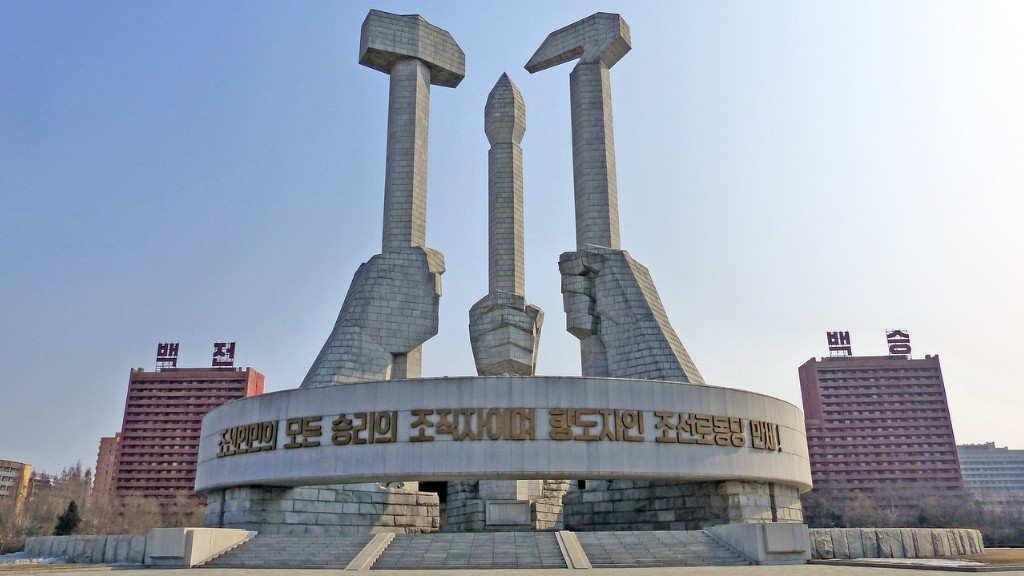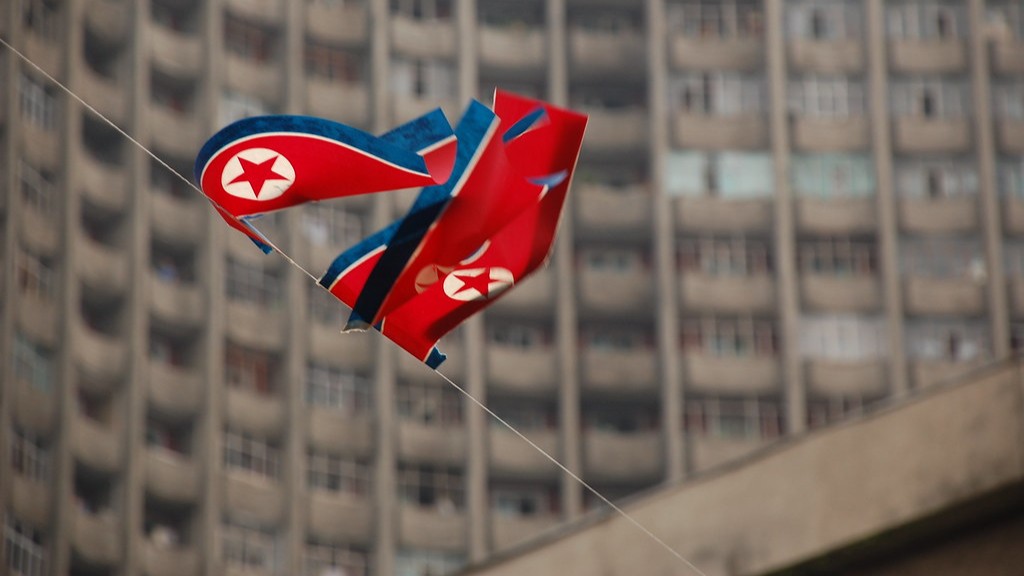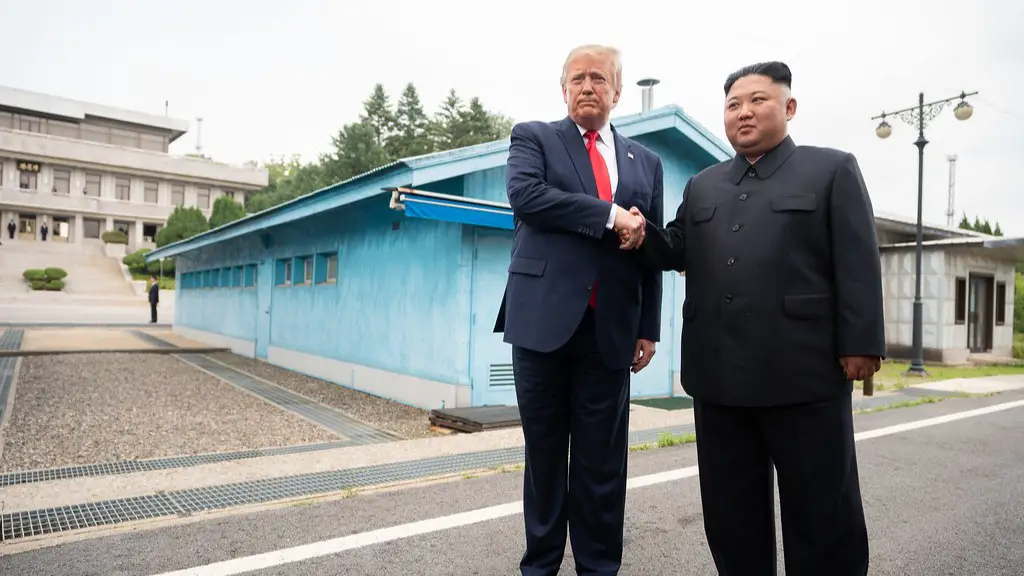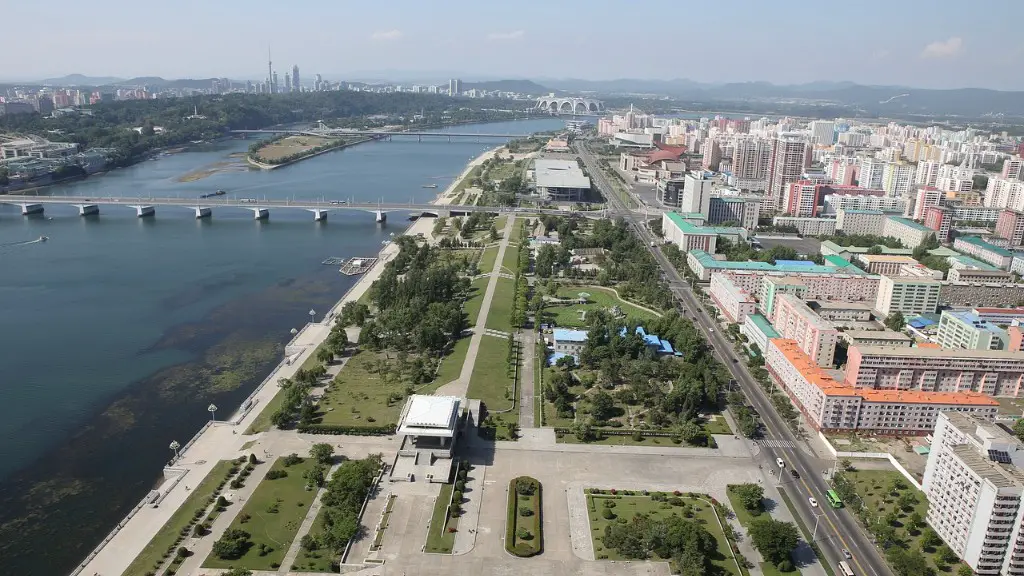North Korea is a nuclear-armed state that has posed a threat to the global community for decades. The country’s history of belligerence and weapons testing has generated international concern, particularly in recent years as tensions have shifted in its favor. As the United States and its allies seek to maintain a delicate balance of power in East Asia, the question remains as to whether North Korea would launch a military attack.
The potential for conflict between North Korea and the US is usually framed in terms of the country’s military capabilities and its stated willingness to use them. North Korea undoubtedly has a powerful military, with an estimated 600,000 active duty personnel, a large stockpile of missiles, and, as of 2020, an estimated 20 nuclear weapons. The country also recently showed a willingness to carry out cross-border attacks, sending military personnel and conducting artillery drills along its border with South Korea in 2020.
In addition to its military might, the North Korean leadership is also known for its tendency to issue bellicose statements and conduct cyberattacks. The country has a long history of making threats against its adversaries, particularly the US. In 2017, North Korean leader Kim Jong Un said, “The US should know that the button for nuclear weapons is on my table,” a sentiment echoed by state media statements on several occasions. Cyberattacks have been a frequent tactics used by North Korean hackers and have been used to target South Korean government websites and databases, as well as foreign banks and government websites around the world.
When considering the potential for an attack from North Korea, it is important to note that the country’s behavior has moderated somewhat in the past few years. In 2018, Kim Jong Un began a series of diplomatic overtures with South Korea, the US and China, resulting in a historic summit between US President Donald Trump and Kim in Singapore that same year. The atmosphere of diplomacy has been credited with reducing tensions between the two countries, though the threat of conflict still lingers in the background.
Experts and analysts point to a variety of factors that could lead to conflict between North and South Korea, including economic mismanagement, sustained pressure from the US and its allies, as well as a possible miscalculation on either side. Kim Jong Un is known for his brash and unpredictable behavior, which could lead him to make a rash decision that could have devastating consequences. It is also possible that Kim might seek a military conflict in order to solidify his control over the country and rally his people behind him.
Ultimately, there is no way to know for sure if North Korea would launch an attack. The North Korean leadership has been largely unwilling to engage in open dialogue about its intentions, and its past behavior has been disturbing and unpredictable. Regardless, the US and its allies must continue to remain vigilant and prepared in order to deter any potential aggression.
Outside Threats
In addition to the direct threat posed by North Korea, there is also the possibility that the country could act as a proxy for other states, allowing them to engage in conflict without formally entering the fray. This could be particularly devastating in the event that North Korea were to provide its weapons and technology to hostile states or non-state actors. This could lead to a wider conflict that could engulf the region, and potentially the world.
In particular, the security of nuclear weapons and materials has been a major concern for the US in recent years. North Korea has a significant stockpile of nuclear materials and weapons, and experts worry that the country may be willing to sell or transfer them to adversarial states. North Korea has a long history of supporting terrorist groups and is known for selling weapons and materials to countries on the US list of state sponsors of terrorism, such as Iran and Syria.
The US has a vested interest in preventing the proliferation of weapons from North Korea, and has taken steps to prevent any transfers of weapons or technology. The US has implemented sanctions and negotiated agreements with the North Korean regime in order to limit their access to nuclear material, as well as their ability to transfer or sell weapons. The US also maintains a strong military presence in the region to monitor and deter any aggressive actions.
The global community also has taken action to slow the spread of nuclear technology. The Treaty on the Non-Proliferation of Nuclear Weapons (NPT) is an international agreement that limits the access of nuclear materials to states that are not in possession of them. The NPT has been ratified by 191 countries, including North Korea, and has been hailed as a major step forward in preventing the spread of nuclear weapons.
Impact on the Region
The potential for a conflict involving North Korea has had a significant impact on the region. In South Korea, the threat of war with the North has been a major factor in the economy and politics, with the country investing heavily in its military and defense capabilities. North Korea’s weapons testing has also led to a series of international sanctions that have had a negative effect on its economy, with the country suffering from a decline in investment and a shortage of food.
The region has also experienced a decline in tourism, with the number of international visitors to South Korea dropping dramatically in recent years due to safety concerns. The international community has also been forced to confront the issue of human rights violations in North Korea. The country has been repeatedly found guilty of crimes against humanity and continues to draw international condemnation for its treatment of political prisoners and its restriction of basic human rights.
The threat of conflict between North and South Korea has created an atmosphere of uncertainty in the region. Tensions flare up periodically, and the US and its allies must remain vigilant and prepared to respond to any aggression from North Korea. The delicate balance of power requires that all parties work together to maintain stability and peace.
Effects on Families
The potential for conflict between North and South Korea also impacts families living on both sides of the border. For many families, the prospect of war is more than just a political issue. It is a personal one, with the potential for serious consequences for loved ones. Many South Koreans are concerned about their families in the North, while North Koreans fear any attempts by the South to “liberate” the North.
The risk of conflict also means that many families must make the difficult decision to leave their homes and flee to other countries in search of safety. This has led to a significant influx of refugees from North Korea in recent years, with the majority of them living in China and South Korea. These refugees often face a host of challenges in their new homes, including poverty, language barriers and discrimination.
The potential for conflict between North and South Korea has led to a sense of fear and insecurity among families in the region. The threat of a military confrontation is an ever-present one, and both sides must be prepared for the consequences should war become a reality.
Restricting Resources
The threat of war has also led to a number of international efforts to restrict resources to North Korea. The US and its allies have implemented economic and diplomatic sanctions against the country, as well as trade and travel restrictions. These restrictions are intended to limit the country’s ability to acquire resources and technology that could be used to develop its nuclear and ballistic missile programs.
In addition, US and UN sanctions have also targeted companies and individuals that are accused of helping North Korea acquire weapons and technology. The sanctions have had a significant impact on the North Korean economy, and have led to shortages of food and basic goods in the country. They have also had a chilling effect on foreign investment, further isolating North Korea from the global economy.
The US and its allies have also sought to convince North Korea to abandon its nuclear and ballistic missile programs, offering the country incentives for denuclearization. The US and China have held several rounds of negotiations with North Korean officials, with the ultimate goal of reaching an agreement on the denuclearization of the Korean peninsula. So far, however, no agreement has been reached.
The threat of war with North Korea has led to a number of international efforts to limit the country’s access to resources and technology. The measures taken thus far have had a significant effect on the North Korean economy and the lives of ordinary citizens, and efforts to engage the country through diplomacy are ongoing.





